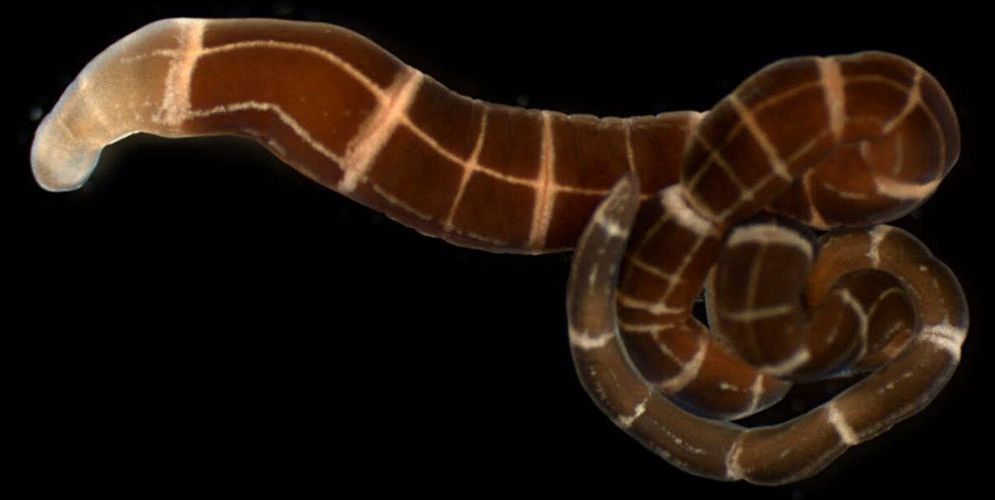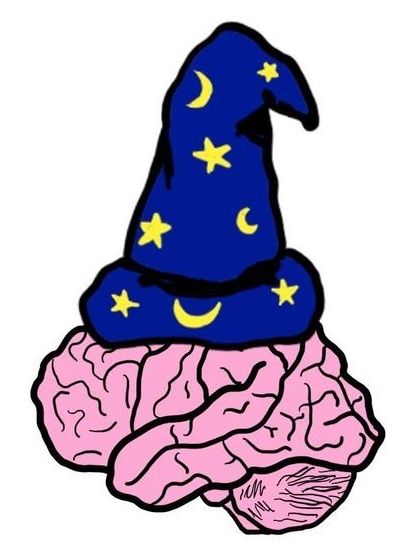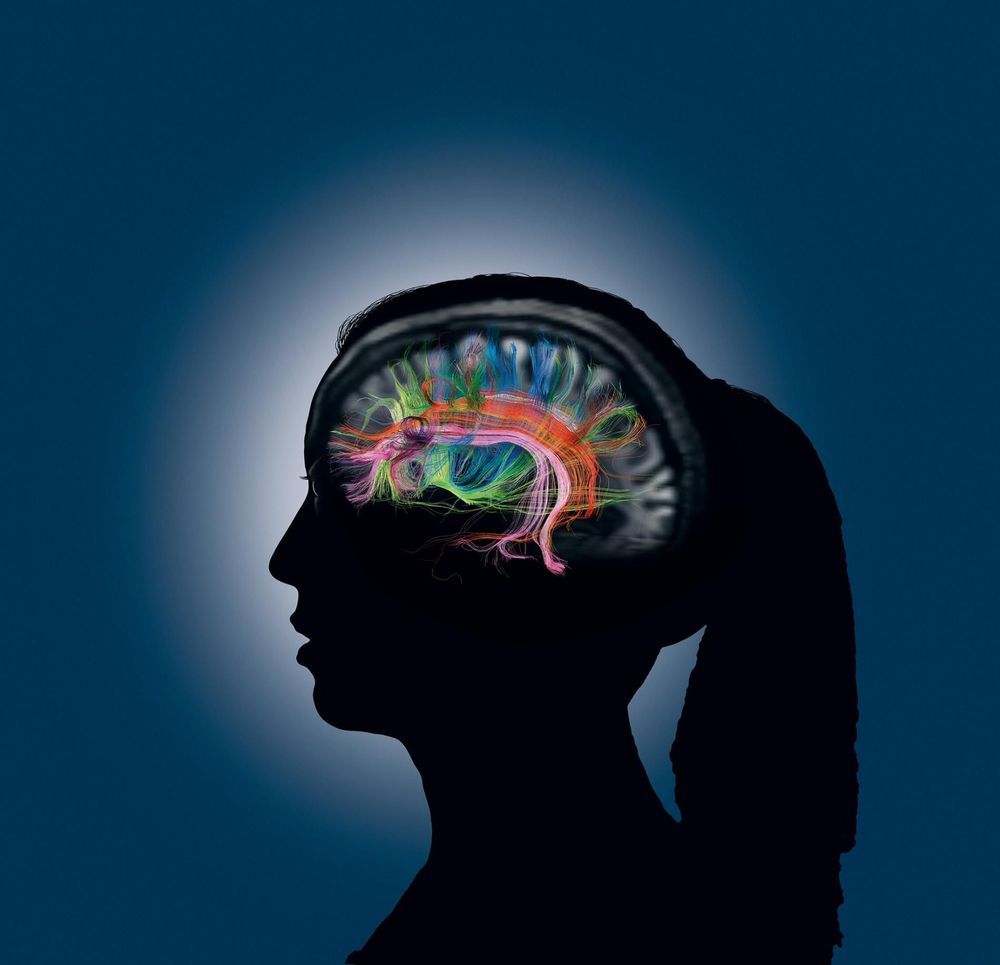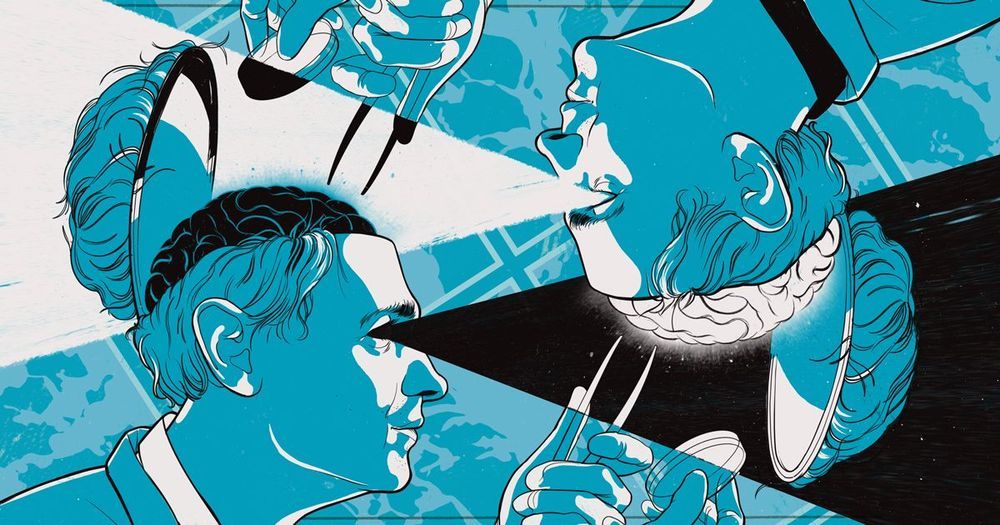Archive for the ‘neuroscience’ category: Page 791
Mar 6, 2019
Scientists find worms that recently evolved the ability to regrow a complete head
Posted by Quinn Sena in categories: evolution, neuroscience
An international group of researchers including biologists from the University of Maryland found that at least four species of marine ribbon worms independently evolved the ability to regrow a head after amputation.
Regeneration of amputated body parts is uncommon but does exist throughout the animal world—from salamanders, spiders and sea stars that can regrow appendages to a species of ribbon worm that can regenerate an entire individual from just a small sliver of tissue. But regenerative abilities were broadly assumed to be an ancient trait that some species managed to hold on to while most others lost through evolution.
This new study, which was published in the March 6, 2019 issue of Proceedings of the Royal Society B, turns that assumption on its head. In a survey of 35 species of marine ribbon worms, the researchers found that the ability to regenerate an entire head, including a brain, evolved relatively recently in four different species.
Mar 6, 2019
Neuralink and the Brain’s Magical Future
Posted by Genevieve Klien in categories: futurism, neuroscience
Mar 6, 2019
Human memory: How we make, remember, and forget memories
Posted by Genevieve Klien in category: neuroscience
Human memory happens in many parts of the brain at once, and some types of memories stick around longer than others.
Mar 6, 2019
FDA Approves First Major New Depression Treatment in Decades
Posted by Quinn Sena in categories: biotech/medical, neuroscience
Experts’ opinions on the new drug, designed for people suffering from the most extreme forms of treatment-resistant depression and administered in the form of a nasal spray, are split.
Mar 6, 2019
Neuroscience Readies for a Showdown Over Consciousness Ideas
Posted by Genevieve Klien in category: neuroscience
To make headway on the mystery of consciousness, some researchers are trying a rigorous new way to test competing theories.
Mar 6, 2019
Our brains reveal our choices before we’re even aware of them, study finds
Posted by Xavier Rosseel in categories: futurism, neuroscience
We believe that when we are faced with the choice between two or more options of what to think about, non-conscious traces of the thoughts are there already, a bit like unconscious hallucinations,” Professor Pearson says. “As the decision of what to think about is made, executive areas of the brain choose the thought-trace which is stronger. In, other words, if any pre-existing brain activity matches one of your choices, then your brain will be more likely to pick that option as it gets boosted by the pre-existing brain activity.
A new UNSW study suggests we have less control over our personal choices than we think, and that unconscious brain activity determines our choices well before we are aware of them.
Published in Scientific Reports today, an experiment carried out in the Future Minds Lab at UNSW School of Psychology showed that free choices about what to think can be predicted from patterns of brain activity 11 seconds before people consciously chose what to think about.
Continue reading “Our brains reveal our choices before we’re even aware of them, study finds” »
Mar 5, 2019
The people in Russia buying ‘immortality’
Posted by Paul Battista in categories: life extension, neuroscience
After Anton Zeldin’s wife was involved in a fatal car accident, he chose to have her brain frozen with the hope that she can one day be brought back to life. Video Journalist: Irina Sedunova.
Mar 5, 2019
“Holy Herb” Shows Promise as Alzheimer’s Treatment
Posted by Quinn Sena in categories: biotech/medical, neuroscience
Mar 4, 2019
Rejuvenating Aged Brains by Waking Up Dormant Stem Cells
Posted by Steve Hill in categories: biotech/medical, neuroscience
Researchers from the University of Luxembourg and the German Cancer Research Center have rejuvenated stem cells in the brains of old mice. The rejuvenated stem cells appear to improve regeneration in areas of damaged or diseased brain tissue.
A new way to model stem cells
A new study that was published in the journal Cell sheds light on why many stem cell populations in aged brains stop dividing and enter a dormant state known as quiescence. Quiescent stem cells have ceased to divide, so they no longer support the tissues of which they are part and play no role in regenerating damaged tissue by supplying fresh cells to replace losses. As we age, an increasing number of stem cells, not just in the brain, enter this quiescent state and impair our ability to heal injury and recover from diseases.
Continue reading “Rejuvenating Aged Brains by Waking Up Dormant Stem Cells” »
















